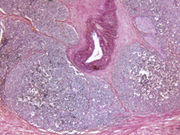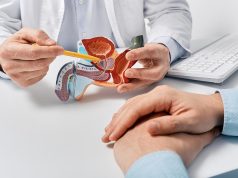Patient race, procedure year, diabetes, transrectal approach, recent hospitalization linked to infection
TUESDAY, April 18, 2017 (HealthDay News) — Infectious complications after prostate needle biopsy increased from 2011 to 2014 across New York State, according to a study published in the April issue of The Journal of Urology.
Using the New York Statewide Planning and Research Cooperative System, Joshua A. Halpern, M.D., from the Weill Cornell Medical College in New York City, and colleagues identified prostate needle biopsies performed between 2011 and 2014 via the transrectal and transperineal approach (9,472 and 421 patients, respectively).
The researchers found that with time there was a decrease in ambulatory use of prostate needle biopsy (P < 0.01). For prostate needle biopsy, the most common indication was elevated prostate-specific antigen (53.2 percent of patients), followed by active surveillance for cancer, abnormal digital rectal examination, and atypia (26.7, 2.6, and 1.6 percent, respectively). During the study period the rate of prostate needle biopsy-associated infection increased from 2.6 to 3.5 percent (P = 0.02). The complication rate among the 777 repeat prostate needle biopsies was comparable to that of initial prostate needle biopsy. Patient race, procedure year, diabetes (odds ratio, 1.92), transrectal approach (odds ratio, 3.48), and recent hospitalization (odds ratio, 2.03) were significantly associated with infection on multivariable analysis.
“With higher complications using the transrectal approach and minimal utilization of targeted antibiotic prophylaxis, further efforts should focus on the evaluation and implementation of these strategies to reduce post-prostate needle biopsy complications nationally,” the authors write.
Copyright © 2017 HealthDay. All rights reserved.








